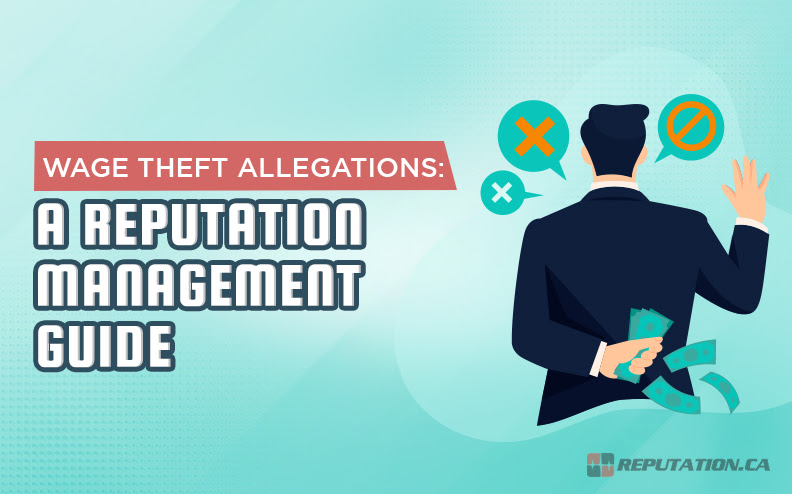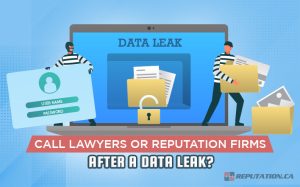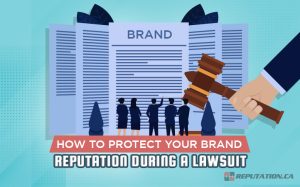Wage theft allegations work differently than most corporate scandals you’ll come across. Just last year, the Department of Labor recovered $273 million in back wages for workers. Some of the largest settlements are huge. Disney paid out $233 million to its employees, and Amazon’s settlement reached $61.7 million.
Amazon kept the driver tips for itself for years until a settlement forced them to pay it all back. Disney underpaid thousands of employees who worked at its resorts. And these cases weren’t the result of a few rogue managers who made bad decisions on their own. These were calculated decisions that were made by massive corporations that have entire teams of staff members whose only job is HR, and to check that everyone follows the policies.
When wage theft goes public, the backlash spreads fast and can devastate a company’s reputation. Current employees worry that their paychecks could be next as job candidates who were excited about their positions suddenly back out. Even loyal customers start to question if they want to support a business that doesn’t pay its workers.
Every company should have strong defenses ready long before any allegations surface, and they also need a damage control strategy for when the big problems hit.
Here’s how to protect your company’s reputation if you face wage theft allegations.
The Trust Crisis That Follows Wage Theft
Wage theft allegations matter in a way that other corporate scandals just don’t. Data breaches and environmental violations can get the public worked up for a few days. But then the news cycle moves on. Wage theft is a whole different animal. When workers don’t get paid what they’ve earned, that bothers anyone who’s ever had a job.
Amazon’s recent settlement is an obvious lesson in how fast trust can disappear. The company had to pay $61.7 million after regulators caught them keeping tips that were supposed to go to delivery drivers. The financial penalty alone was massive. But the real damage came from what happened next. Talented workers who would have considered joining Amazon started to have serious doubts. Long-time customers began to question if they actually wanted to continue supporting a business that would treat its workers that way.

Wage theft allegations couldn’t come at a worse time for businesses. Workers everywhere are already counting pennies just to cover groceries and rent. When a company gets caught stealing wages from its employees in this economy, the public reaction is brutal. Employees at other businesses quickly start to worry, too, and they can’t help but double-check if their own paychecks add up.
Workers quickly take a much harder look at their own pay stubs. Doubt creeps in about their overtime calculations and bonus amounts. Did they actually get paid what they were supposed to get? This type of suspicion can spread through a workplace very fast. Once the trust between employees and management breaks down, productivity can drop off as well.
The financial damage happens fast, and it’s easy to measure. Stock prices can drop about 3% within a week after wage theft stories go public. Customer loyalty scores can fall by as much as 15 points in that same timeframe. Investors also start to question what else could be going wrong if a company’s leaders are willing to steal from their own employees.
Build Your Bulletproof Payroll Systems
Payroll problems can destroy a business faster than almost any other operational failure out there. The smartest move any company can make is to build bulletproof systems right now that can stop these disasters before they have a chance to happen. A strong defense means payroll processes that have complete documentation at each and every step along the way.
Monthly payroll audits have become something you need – there’s no way around it anymore. Pull up every time record and match it against what actually got paid out to employees. Write it all down and file everything where you can get to it later. Employee disputes are inevitable, and when one pops up, you want all your documentation ready to go. Complete records prove what happened and when it happened. This transparency protects everyone involved – the company and the employees alike.

Multi-state payroll compliance gets messy when you have employees who are spread across different states. California has different overtime laws from what’s needed in Texas. New York mandates meal breaks for employees. But those same requirements don’t even apply in Florida. Remote work has also made all this much harder to track because employees will sometimes move to a different state and forget to tell anyone in HR. And each state has its own set of requirements that might apply to it.
Walmart has paid out millions of dollars in settlements over the years because of this exact problem. Each store location was doing whatever it wanted with employee timekeeping. At some stores, managers would tell workers to clock out and then continue working off the clock. At other locations, managers actually went into the computer system afterwards and manually deleted the hours that employees had already worked. The company could have avoided these massive legal problems if they’d just had better oversight and had the same policies across all its stores.
Quality payroll systems need an investment up front. But the cost is nothing compared to what a lawsuit will cost you. Bad publicity can follow your business around for years after the fact. High employee turnover is another expense that builds up over time. Paying your workers accurately and on time makes your best workers more likely to stay. I’ve seen it happen over and over – businesses with solid payroll practices have employees who stay for years instead of months.
Employee classification is one of the riskiest parts of payroll right now. Contractors and employees have different requirements that apply to them. Businesses classify everyone as a contractor to save money. The Department of Labor almost never agrees when they come in to investigate!
Actions to Take When Allegations Surface
Wage theft allegations can destroy a company in a matter of days. Those first 48 to 72 hours after an allegation comes to light are when everything happens, and the actions that you take in that window will either keep the situation under control or let it spiral into total chaos. Your gut reaction is probably going to lead you in the wrong direction. Don’t try to defend yourself, and whatever you do, don’t deny anything just yet. Businesses need to lock down all their payroll records and time sheets as soon as possible when this situation arises. I can’t stress enough how important these documents are for what comes next. They become your primary evidence and reference point for every choice you make ahead. Once these records go missing or anybody tampers with them, you’ll have real problems on your hands.
Management needs to sit down with the employees who raised these concerns, and this needs to happen soon. Make sure you document these conversations well because you need to have a record of what everyone actually said during these meetings. You need to get to the bottom of what went wrong here, and you need to get it fast before the rumor mill takes over and creates its own narrative. Employment counsel should already be on speed dial at this point because they’re the ones who can tell you what information you can share and what has to stay confidential.

Chipotle learned the hard way that you can’t sit on wage complaints. They had a few employees who raised overtime problems and probably brushed them off as minor. They waited too long to handle them, and those small problems snowballed into massive class action legal battles. The entire disaster could have been avoided if they’d just handled the problems right away.
Businesses are stuck with a balancing act here. They need the time to investigate, but can’t leave everyone in the dark. Most businesses handle this poorly. They either deny everything right away or basically confess before they know the facts. Both strategies backfire. Internal communication also becomes tough in a situation like this. Employees are going to panic the second that leadership stops talking to them. At the same time, some conversations have to remain protected by legal privilege, and that’s not negotiable.
Your best bet is to choose one person who can take care of all of the communication and make sure that every manager knows to send questions their way. Everyone else in the company needs to stay away from the topic in emails or meetings that aren’t legally protected.
Settlement Options for Your Business
Wage theft allegations put businesses in a very tough position, and business owners have to decide fast if they should settle or go to court. Settlement usually makes more financial sense when you add up the costs involved. Legal fees add up very quickly during litigation. And the damage to your company’s reputation can follow you around for years after everything is over.
Walmart ran into big problems in Pennsylvania a few years back and ended up paying $65 million to settle its wage theft claims. That settlement alone was painful enough. What actually hurt them, though, was the months and months of terrible press coverage during the legal proceedings. Every court appearance meant another round of negative headlines, and the damage to their brand reputation just kept piling up.

Businesses that make mistakes with wages can turn the situation around if they own up to their mistakes quickly. Businesses that voluntarily fix their pay problems usually win back respect pretty fast. Customers appreciate it when a company corrects its mistakes without being forced to. Arbitration agreements and collective action waivers are probably already written into most of your employment contracts, and yes, these can help protect you from some types of legal problems. The downside is that they do almost nothing when an angry customer decides to blast you on social media or when employees start sharing their experiences with reporters.
The Department of Labor has a lot of power over how these cases turn out, and the way that they handle your case depends mostly on how you treat them. Cooperation and showing them that you actually want to fix the problems usually make the process go much smoother for everyone involved. Businesses that refuse to cooperate and fight the DOL every step of the way usually wish they hadn’t.
Add specific commitments about payroll improvements and how you’ll make them happen. Scheduled audits and better timekeeping systems also show that you’re serious about making changes. Make these commitments and follow through, and employees and customers will trust you again.
How Your Business Rebuilds Trust
Third-party audits are probably your best bet for rebuilding credibility after something like this. An independent firm that examines your payroll practices and confirms everything is legitimate carries genuine weight with stakeholders. Press releases and public statements can’t even come close to what an external audit does for your reputation. The difference between claiming you’ve fixed the issues yourself and having an outside expert verify everything is massive.

Businesses with past violations frequently become the strongest advocates for wage equity in their entire industry, and I see this pattern all of the time. This seems backwards, but there’s actually a real reason for this change. These organizations have already experienced the damage that wage theft does to workers and to the business itself. Painful lessons like these usually leave a deep impression on everyone who is involved.
Your employees watch everything that you do. They’re your toughest critics and also your best advocates at the same time. When they start to believe in the company again, they’ll share their experiences with others. That authentic testimony is more powerful than any marketing campaign that you could create. Employee satisfaction scores are worth tracking closely. Recruitment numbers will follow the same pattern over time. Those metrics show the truth about how workers actually view your changes. They show whether anyone actually believes that the company has changed for the better.
Media coverage usually takes a while to turn around, but it will if you stay steady with your reforms. Those same reporters who covered the original allegations may want to write about your turnaround if you have genuine changes to show them. Partner with the worker advocacy groups that called you out earlier – their endorsement can change how fast your reputation recovers. Just remember – these relationships need to be genuine. A fake partnership sticks out like a sore thumb and will backfire every time.
Monitor and Manage Your Reputation
Wage disputes are probably one of the hardest types of crises a company will ever have to deal with. We’re talking about situations that affect an employee’s ability to pay their bills and buy groceries for their family. When workers feel like the company has messed with their paycheck, that anger and frustration can move through the whole workplace faster than you can imagine. It can leak out into the community and show up all over social media, too. Standard crisis management playbooks just aren’t built for these extremely personal situations.
Each phase of a wage dispute crisis needs its own strategy and messaging plan. The prevention measures that you set up early on won’t be nearly enough once the allegations actually start coming out. Recovery after everything calms down requires a different game plan, too. Bad news can spread very quickly now, and even a small delay in how you respond can turn a manageable problem into a disaster. The businesses that manage wage disputes well are the ones that stay transparent right from the very start. They move fast, and they show through their actions that they genuinely want to fix what went wrong.

I’ve seen plenty of businesses come out of wage crises much stronger than they were before the problems started. When your organization works through these challenges with transparency and makes concrete changes to stop future problems, employees and customers will also pay attention. You’ll become known as the company that owned its mistakes and put in the hard work to make everything right.
Wage disputes can spiral into serious PR disasters. You need experts who know how to manage the legal side and the public perception side. At Reputation.ca, we’re Canada’s most trusted reputation management firm, and we help businesses protect their reputation online when situations get messy. We take care of review management, social media strategy, public relations and crisis response that actually fits your situation. Get in touch for the expert help you need right now.







